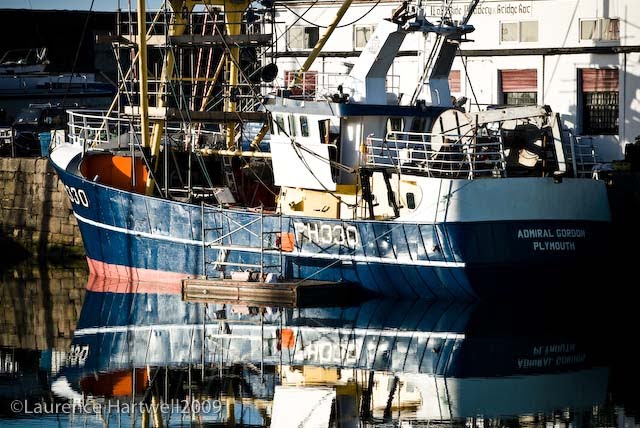From bream trawlers caught illegally casting their nets in the Celtic Sea to activists patrolling the Mediterranean to tackle tuna boats in closed waters, few industries provide as much intrigue as fisheries.
Just last week, 40 French vessels encircled five British boats 20 miles off the coast of Normandy because they were trawling for scallops. The French sailors threw bricks and rocks at their trapped rivals.
Just last week, 40 French vessels encircled five British boats 20 miles off the coast of Normandy because they were trawling for scallops. The French sailors threw bricks and rocks at their trapped rivals.
The scallop scuffle is a result of domestic quotas, which prevent Frenchmen from catching the shellfish for several months a year to allow stocks to replenish. The same rules don't apply to the Brits, but UK fishing companies have fallen foul of the broader EU quota system and been fined as much as £100,000 for failing to declare their catches.
The EU's Common Fisheries Policy is up for renewal, with updated legislation expected in 2013. Next week, fisheries ministers meet to thrash out the plan, pitting lovers of the sustainable techniques promoted by celebrity chef Hugh Fearnley-Whittingstall against those who want subsidies to maintain huge trawler fleets.
This skirmish doesn't just affect an ancient industry, which employed nearly 30,000 people in the UK in the Sixties, down to well under 15,000 today, but the price of the 300 million servings of fish'*'chips Brits tuck into each year.
For every 10 per cent increase in the stock of herring, haddock, or hake, there should be a 2 to 5 per cent decrease in the price of a fish supper, which, incidentally, went up by about 50p a portion last year.
At least 49 stocks, including blue whiting and plaice, are overfished in the north-east Atlantic. In September, a report by the New Economics Foundation found a cessation on fishing these species, from two months for mackerel to a little over nine years for certain types of cod, would replenish their numbers, and mean the catches would double in value from £130bn to £260bn over a 40-year period. That translates to 50 per cent more fish per Brit each year, from around 20kg consumed to 30kg. "Naturally, that would lend itself to a drop in prices," says the report's author, Rupert Crilly.
However, it seems unlikely that such a radical proposal will be endorsed, as many campaigners fear that the EU will continue a policy of pumping the vast majority of the ¤1bn (£800m) of annual subsidies into new boat engines or refits.
This, it is argued, simply encourages large-scale fishing and will further deplete the seas. Markus Knigge, an adviser to the Pew Environment Group, says: "What we want to see is this public money invested in replenishing fish stocks, but unfortunately politicians like to hand over money for big capital spends like vessels so they can show what they've done. Britain is, relatively, on the good side of this argument."
Environmental groups also claim that many subsidies are going to fishing companies that have been fined for breaking current legislation. Greenpeace campaigner Emma Gibson says: "It's sheer madness to give taxpayers' money to destructive, and sometimes even illegal, fishing operations when thousands of British inshore fishermen, who tend to fish sustainably and look after their patch, are struggling to keep their businesses afloat."
This fish fight, then, is more than a handful of mariners scrapping over scallops. Political posturing, national interests, and the Friday night supper are all at stake.
Story courtesy of Daily Telegraph Business.
Story courtesy of Daily Telegraph Business.












